Author Interview: Writer Vincent Czyz — To Create a World
By Bill Marx
“I don’t believe in the supernatural or god, so if we’re going to experience something transcendent, and I do think we have a need for that, then we’re limited to psychedelics, spiritual states of meditation, and art.”
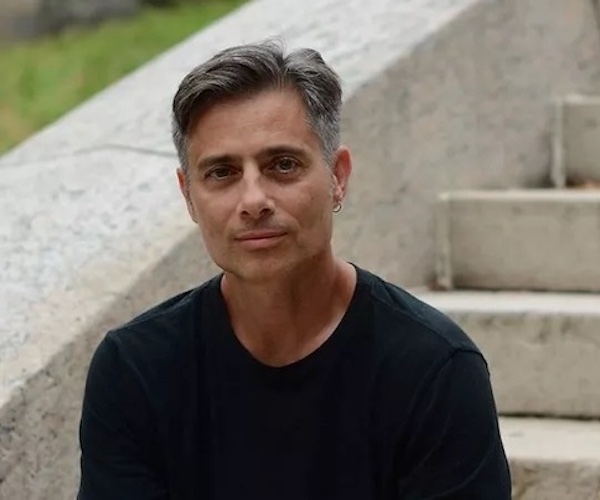
Writer Vincent Czyz — “If we learn to take in more and screen out less, more avenues for exploration open up, and it’s usually worthwhile taking one.”
Long-time Arts Fuse contributor Vincent Czyz and I share literary loves, especially an abiding enthusiasm for what was called, back in the ’90s, maximalism, a belligerent belief among a group of writers and critics that, when it came to fiction, more was more. Meaning more words and more intellect. Novelist Paul West’s essay “In Praise of Purple Prose” reasonably argues that “human beings need pageantry every bit as much as they need austerity.” “As long as originality and lexical precision prevail, ” he insists, “the sentient writer has a right to immerse himself or herself in phenomena and come up with as personal a vision as can be. A writer who can’t do purple prose is missing a trick. A writer who does purple all the time ought to have more tricks. A writer who is afraid of mind, which English-speaking writers tend to be, unlike their European counterparts, is a lion afraid of meat.” Maximalists were dead set against the numbing spread of “philistine funk,” but it has pretty much won the war, except in the world of small magazines.
All manner of tricks and cuts of meat can be found in Czyz’s fiction and non-fiction. His books of fiction include Adrift in a Vanishing City, The Christos Mosaic, and The Three Veils of Ibn Oraybi. He has contributed work to New England Review, Agni, Tin House, Skid Row Penthouse, and other publications. In his new collection, The Secret Adventures of Order: Critical & Personal Essays (Rain Mountain Press, 199 pages, $20), Czyz shows off his various wiles with aplomb. The volume’s pieces range from Czyz’s meditation on the distinctions between poetry and prose (sparked by his disgust at plans to build an IKEA store in New Rochelle, NY) to his memories of grappling with a violent father, including his attempt to heal via an ayahuasca ceremony. Thoughtful huzzahs for writers such as John Berger, William Gass, and Guy Davenport sit alongside incisive critiques of Ben Lerner and A.S. Byatt. And there’s a nifty meditation on why, despite popular confusion, Satan and Lucifer are not one and the same: “In most of the Old Testament, God is the author of good and evil. Beginning with the Chronicles, however, the blame shifts to the Devil.”
I sent Czyz some questions via email about The Secret Adventures of Order. Of course, I had to ask about maximalism, but I also wanted to hear more about how his difficult childhood informed his sensibility as a writer. And why is he so fascinated with the Bible? Responses below.
Arts Fuse: Talk about how you went about deciding what to include in this eclectic collection of critical and personal essays. What impression would you like to leave with the reader?
Vincent Czyz: I gave priority to essays that had a thesis of some sort. I enjoy creative nonfiction, by which I mean personal, often memoirish essays, but editors have used those to push aside the more traditional essay—at least what I consider the more traditional essay. I noticed this trend in The American Scholar. It’s still a good magazine but not nearly as good as it was thirty years ago. If you flip through issues from the ’80s and ’90s, you’ll see meticulously thought-out, elegantly argued essays that are out to prove something, change your perspective, illuminate, maybe even enlighten. (That last word, I know, will get you barred from social gatherings.) Eric Rothstein’s 1997 piece on the sublime is itself sublime. I rarely see that sort of writing in The American Scholar anymore—or anywhere else. It seems harder and harder to find essays with the intellectual depth and lyricism of language and thought you’ll find in, for example, Paul West’s “The Jazz of Consciousness,” Guy Davenport’s “The Symbol of the Archaic,” or William Gass’s “The Soul Inside the Sentence.” They’re still out there, of course, but they’ve been pushed to the sidelines (the sidelines being the small presses and lesser-known literary magazines).
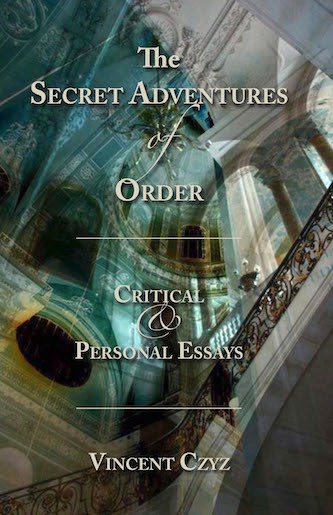 I once taught from an anthology, purportedly of the best essays of the 20th century, and there wasn’t one from Davenport, who to my knowledge never wrote about himself but who is surely one of our country’s greatest essayists. Imagine a comparable 19th-century compilation without a single entry from Emerson. There was one from Gass but not his best. I think it was chosen because he talks about his mother’s alcoholism. When I pick up a Best American Essay anthology, I often come across pieces that aren’t particularly well-written or keenly observed. These tend to be tales of family dysfunction or personal hardship. Subject matter often eclipses literary merit. I’d actually like to see that anthology split into two volumes: one for the critical/argumentative essay, and one for creative nonfiction/the personal essay. Creative nonfiction can be absolutely wonderful. Jo Ann Beard’s “Werner” ranks among the best, but even David Foster Wallace, who chose it for The 2007 Best American Essays anthology, questioned whether or not it qualified as an essay. I’m also a big fan of Poe Ballantine’s autobiographical nonfictions. The point is that there’s no need to privilege one type of nonfiction over another. There’s room for both, which is essentially the case I made when I discussed the differences between prose and poetic language in the collection’s lead essay. I myself am not immune to the attraction of a less formal, more personal approach: several of the critical essays in the collection are first-person narrations. I also felt the collection would be more balanced if I included personal reflections and experiences, which is why about a quarter of the essays, including the longest, are autobiographical.
I once taught from an anthology, purportedly of the best essays of the 20th century, and there wasn’t one from Davenport, who to my knowledge never wrote about himself but who is surely one of our country’s greatest essayists. Imagine a comparable 19th-century compilation without a single entry from Emerson. There was one from Gass but not his best. I think it was chosen because he talks about his mother’s alcoholism. When I pick up a Best American Essay anthology, I often come across pieces that aren’t particularly well-written or keenly observed. These tend to be tales of family dysfunction or personal hardship. Subject matter often eclipses literary merit. I’d actually like to see that anthology split into two volumes: one for the critical/argumentative essay, and one for creative nonfiction/the personal essay. Creative nonfiction can be absolutely wonderful. Jo Ann Beard’s “Werner” ranks among the best, but even David Foster Wallace, who chose it for The 2007 Best American Essays anthology, questioned whether or not it qualified as an essay. I’m also a big fan of Poe Ballantine’s autobiographical nonfictions. The point is that there’s no need to privilege one type of nonfiction over another. There’s room for both, which is essentially the case I made when I discussed the differences between prose and poetic language in the collection’s lead essay. I myself am not immune to the attraction of a less formal, more personal approach: several of the critical essays in the collection are first-person narrations. I also felt the collection would be more balanced if I included personal reflections and experiences, which is why about a quarter of the essays, including the longest, are autobiographical.
I hope readers come away with the impression that I was paying attention to the world and some of the things in it. Eratosthenes, a librarian in ancient Alexandria, set a great example for the rest of us. Simply by paying attention to shadows, he realized that the Earth is round. He even calculated its circumference—and came pretty close—almost two millennia before Columbus set sail. It’s such a fabulous historical anecdote, I slipped it into one of my short stories. The problem with paying attention, as Aldous Huxley pointed out, is that our default reflex is to screen out. He famously called the brain “the great reducing valve.” Coincidentally enough, I mention the reducing valve at the end of the second essay in the collection. In any event, if we learn to take in more and screen out less, more avenues for exploration open up, and it’s usually worthwhile taking one. You’ll learn something about the natural world, the human-made one (society, the arts, etc.), yourself—maybe all of the above. And sometimes a bit of new knowledge makes being here—in your head, in society, in the world—a little easier.
AF: You make passionate cases for maximalist/alternative writers like William Gass and Guy Davenport. Why do you feel writers like these are neglected today? Do you see yourself carrying on their stylistic interests, marrying poetry and prose?
Czyz: One reason writers like Gass and Davenport are marginalized is the hegemony of story. When students in MFA workshops come across dense writing or what Jayne Anne Phillips calls heightened prose, there’s a lot of headshaking and complaining that the writing is drawing attention to itself. They’ve been sold the swindle that story is everything (EM Forster pushes back against this idea in Aspects of the Novel). A style is supposed to be neutral, they insist, to get the job done behind a curtain, like a stagehand. Anything that distracts from the story is discouraged. I think there’s a useful parallel here with painting. When Monet introduced the visible brushstroke, he was derided and his work was dismissed. Painting at that time was guided by the principle that the artist had to strive for a perfect illusion of realism or at least conceal the fact that the medium was paint. Now, of course, it’s mostly the reverse: the invisible brushstroke is still practiced, but it’s not very common. There’s another reason, though. Henry James was a maximalist, but he never let go of the idea that a novel should have narrative tension, that the writer had to make the reader want to turn the page to find out what happens next. John Updike, whose sentences often have an aura of almost preternatural beauty, subscribed to this idea. Davenport and Gass did not. They wanted the language itself to drive the story, and that’s bound to be less popular with readers.
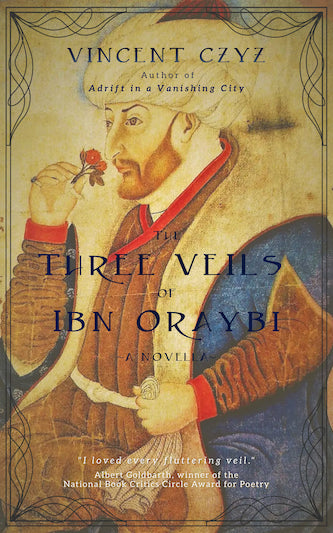
As for the marriage of prose and poetry—a Blakean title almost—that’s exactly what I was after in Adrift in a Vanishing City. One reviewer wrote that if I cut the stories down by about a third, they’d be poems. Two of the stories actually began as poems. At the same time a story, in a sense, decides the language in which it should be told. I try to listen to the story—weird or pseudo-mystical as that sounds—to hear the best context for the characters. Some of my work reads fairly conventionally because that seems the best fit. For the most part, though, I believe in Heidegger’s project to re-poeticize the world. Davenport also called for a more primal relationship to the world, which he connected to poetry. As did Rilke, who says to write poetry we have to look at the world like some first human. So poetry, especially the kind that looks to defamiliarize, seems to me the best way to “make new magic in a dusty world” (to pilfer from Thomas Wolf). Or as Coleridge put it, “to give the charm of novelty to a thing of every day.” Why shouldn’t prose do that as well? I don’t believe in the supernatural or god, so if we’re going to experience something transcendent, and I do think we have a need for that, then we’re limited to psychedelics, spiritual states of meditation, and art.
AF: In your personal essays you focus on your adolescence, particularly your troubled relationship with your father. How did that shape you as a writer?
Czyz: My father was heavy-handed, to put it mildly, and my defense against his fits of rage was to withdraw into myself—and books. I became more introspective, more self-reliant psychologically. I loved reading but it also became an escape. Writing followed naturally from all this reading and alone time. Writing allowed me to create my own world and disappear into it. Up until university, I read almost exclusively science fiction and fantasy—again, the escapism I gravitated toward because I had such a difficult home life.
I think my father’s effect on me as a writer is mainly in terms of the themes that interest me and certain plot points. Some of my protagonists, for example, have overbearing fathers. They’re not allowed to be what they want to be (my father made me promise I’d go to law school after I graduated from college). He grew up very poor, so he emphasized the importance of money far more than he would have had he grown up middle class. I rebelled against that materialism without understanding it. Not surprisingly, I have a fondness in my writing for rebels in general—Zirque Granges, a cagey drifter in several stories in my collection, is a sort of rebuke to my father.
AF: One thing I noticed in this collection was the relatively scarce presence of women — the male writers and friends make a much stronger impression. Would you agree?
Czyz: Yes, I would, and there’s a reason for that. My mom has been there for me throughout my life, and she’s still there for me. But there were all kinds of validation issues with my dad. He roundly ignored me as a child. Even as I got older and it was harder for him to do that, he remained closed off. He fought against my being a writer, but more than that, he refused to even try to understand me. He wanted to make me into the image he had in mind for me. And he was open about it. He often said he was “molding” his sons (I have two brothers). He’s quoted saying something along those lines in a newspaper article. I came to believe he didn’t approve of me as a son or even a person. And then, before we could reach some kind of understanding, he died. It was too soon for me to do without fatherly approval, and I spent years looking for surrogate fathers without being consciously aware that’s what I was doing. I mention this in “Palluccaville,” the longest essay. And because none of the men I settled on was actually my father, I’m not sure I ever stopped looking. Kate Jelly, a sculptor, once said something that applies here, “You can never get enough of a substitute.”
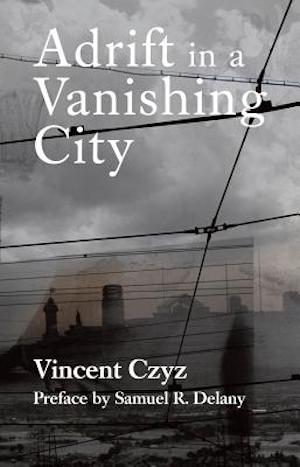 AF: James Goodman calls you “less a fighter than a shrewd observer.” I would say your critiques of A.S. Byatt and Ben Lerner throw some substantial punches. How would you characterize your literary sensibility?
AF: James Goodman calls you “less a fighter than a shrewd observer.” I would say your critiques of A.S. Byatt and Ben Lerner throw some substantial punches. How would you characterize your literary sensibility?
Czyz: Well, obviously I’m very taken with writers like Paul West, Guy Davenport, and William Gass. We can add William Gaddis, Jorge Luis Borges, John Keene, Marilynne Robinson, and Jayne Anne Phillips along with the much underappreciated Tamas Dobozy and Stephanie Dickinson. What these writers have in common is attention to language. Their prose, to varying degrees, is lyrical, in some cases even difficult, but well worth the effort. As BR Myers has pointed out, the language you use to write about a world is that world. And that’s one of the most important tasks of any writer—to create a world. These authors tend to take on ideas as well. Their fictions have intellectual heft. They provoke rumination.
I’m also drawn to work that creates a mood—mood, almost in itself, can pull me through a book. Melville for the most part pulls this off in Moby-Dick, particularly his descriptions of the sea. Heart of Darkness is permeated by a dark, intense mood. Samuel R. Delany’s Dhalgren is still more atmospheric. Jayne Anne Phillips and Faulkner are masters of mood. So are Alice Munro, John Keene, Cormac McCarthy, Gabriel Garcia Marquez, and Stephanie Dickinson. When voice and mood are just right, the work is haunting, and that, for me, is a pinnacle—a book that sticks with you after you’ve read it, a book you flash back to as if it were something that happened to you, not something you happened to pass by on your way somewhere else.
So, no, it’s not simply a matter of story story story. If your story is forgettable, if it has no afterlife, it hasn’t quite succeeded. It’s a distraction rather than an experience. As I wrote in the second essay, the stories that have stayed with me offered something for body, mind, and heart. They don’t neglect the physical world or fail to describe what their characters look like. They make me think. They make me feel. They have duende, as Lorca called it—what was meant in the ’70s by soul. If you want to see the difference, go to YouTube and watch Little Richard sing “Tutti Frutti” then find Wayne Newton covering it (warning: you can’t unsee the latter). Whatever faults Kerouac and Henry Miller had—and there were serious ones—they had plenty of duende. That’s why their books are still in print.
The mark of the best books is that they can be reread. But if a novel is strictly plot-driven, you won’t because you already know what’s going to happen. I just reread To the Lighthouse, and it was intensely rewarding. I suspected I wasn’t ready for it when I was 23, and I was right. It was always one of my favorite novels, but now it’s in the top 5. I’ve read Samuel R. Delany’s Dhalgren three times—my limit, so far, for rereading a novel—but I’m considering a fourth. Not only because it does everything I want a good book to do, but because I get more out of it every time I read it. I want to spend time in the world Delany constructed, with the characters that inhabit it, with the voice in which it’s written and the mood it creates.
While I tend to like fiction that’s innovative in some way, I often hear conventional writers heaping scorn on avant-garde authors and vice versa. I think that’s a mistake. I read Julio Cortazar’s Hopscotch twice. I enjoyed it and its structural oddities both times, but his experimental short fictions don’t do much for me. I’d much rather read Raymond Carver. I’ll read anything that I feel is brought off well, including science fiction. At the same time, if fiction is going to take a formal risk, it should in some way be necessary. Innovation for the sake of innovation is just a gimmick. Nor do I see the value in an avant-garde novel that’s less interested in conveying some aspect of human experience than in putting the reader through a mental gymnastics routine for reasons that never become clear. One kind of writing isn’t inherently “better” than another. It’s a matter of the proper tool for the proper job. Some forms suit certain themes and stories better than others. I can’t see The Old Man and the Sea being a better novel if only it were an avant-garde experiment. I can’t see Dhalgren being written by Hemingway.
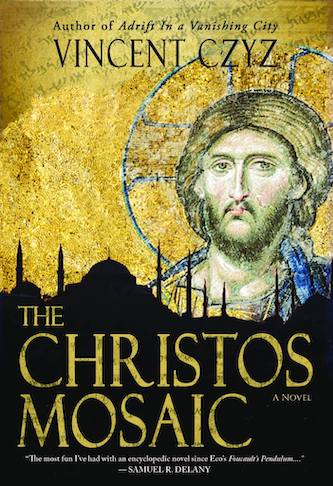
AF: One of my favorite essays is where you explain the opportunistic reasons for the confusion between Lucifer and Satan. Your novel The Christos Mosaic looks at the origins of Christianity. Why does the Bible fascinate you?
Czyz: The Bible fascinates me in part because I was raised with no religious education whatsoever. I grew up in a very Christian community but knew nothing about Christianity. And Judaism was an even more foreign concept. As I got older I came to realize a couple of things. One is that Christianity is one of the pillars of Western civilization. Secondly, the Bible is loaded with contradictions, not just between the Old Testament and the New, but within the testaments. And this is what our civilization was founded on! Muddled theology, fables peddled as historical truths (think Noah’s Ark), ultra-strict religious laws with ruthless punishments (the penalty for breaking most of the commandments is death, usually by stoning, and there are over 600 commandments, not just the well-known ten)—clearly, I needed to know more about this book. So I read it cover to cover, studied it, and found there was a lot to admire as well as criticize.
I have a fascination with mythology and religions in general. My shelves are full of books like Frazer’s The Golden Bough and Robert Graves’s The White Goddess. Myths are our oldest attempts at explaining the universe, and that brings us back to poetry, maybe our oldest way of looking at the universe (symbolically) and the way myths were often recorded. Freud called myths public dreams and dreams private myths. The Talmud says an uninterpreted dream is like an unopened letter. So I think of myths as letters sent to us from thousands of years ago. What infuriates me is when religious myths—biblical in this country—are treated as facts. They contain psychological truths, but that’s why they’re fictions. Fiction is a true story that never happened. The morals of Aesop’s fables are in some sense true, not the race between the rabbit and the tortoise. So the Bible makes it into my fiction and nonfiction partly because I find it fascinating, but also because I’d like people to take it for what it is: a poetic, not a literal, way of looking at the world. And by now we should understand the importance of mistaking the symbolic for the literal—from burning women at the stake as witches to 9/11.
Bill Marx is the editor-in-chief of the Arts Fuse. For four decades, he has written about arts and culture for print, broadcast, and online. He has regularly reviewed theater for National Public Radio Station WBUR and the Boston Globe. He created and edited WBUR Online Arts, a cultural webzine that in 2004 won an Online Journalism Award for Specialty Journalism. In 2007 he created the Arts Fuse, an online magazine dedicated to covering arts and culture in Boston and throughout New England.

A great interview with a brilliant, wide ranging writer.
Fascinating interview with Czyz, a one of a kind writer, who only appears every 50,000 years like Comet Kahoutek
What an extraordinary exchange of thoughts and ideas. Czyz is remarkable here: an intensely accomplished and thought provoking writer.
I met this writer on Saint Mark’s Place selling his book (1998) ADRIFT in a VANISHING CITY. He even wrote me a brief line in the book I purchase back in October 16, 1999 (he also wrote the date of purchase). I treasure this book and I am re-reading it again. I am glad that he is doing well and still living in the Northeast with his family. We were looking to have him selling this book in the East Village where I have continued to work as a psychotherapist for an agency known at UNITAS (57 Saint Mark’s Place). I enjoyed talking with him during my break from the madness of the job. Congratulations Vincent. Angel Caula.